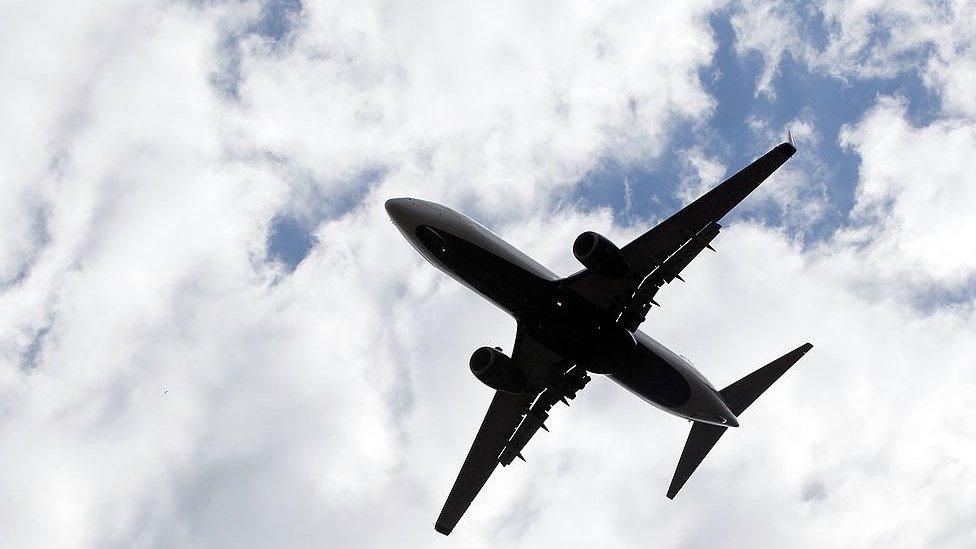Muslim men on no-fly list have right to sue FBI, says US Supreme Court
- Published

Three Muslim men who say they were put on a no-fly list after refusing to help the FBI have won the right to sue the agents, the US Supreme Court has ruled.
The court said the men, who are US residents, can seek money under the Religious Freedom Restoration Act.
The men - who all lost work due to the blacklisting - argued that the FBI violated their beliefs by pressuring them to spy on other Muslims.
None of the men were ever suspected of illegal activity, their lawyers say.
One of them said he was unable to visit his ailing mother, while another said he could not visit his wife.
FBI agents may still settle out of court, or invoke qualified immunity.
Qualified immunity is a legal doctrine that shields officers from being held personally liable for violating the constitutional rights of people they arrest.
Critics argue that this thwarts attempts to hold officers accountable. Democrats in Congress have submitted legislation to get rid of it, but their efforts have been blocked by Republicans.
The Trump administration had sought to dismiss the case, Tanzin v Tanvir, arguing that it concerned "sensitive matters of national security and law enforcement".
The unanimous 8-0 ruling marks an early phase of the case, and the justices were required to assume that the allegations made by the men are all true, the New York Times reports.
Muhammad Tanvir, the lead plaintiff, is a lawful permanent resident who was working in New York City as a long-distance lorry driver - a job that required him to fly home after driving long distances.
But in 2010 he was refused entry to a flight from Atlanta. FBI agents drove him to a bus station instead to complete a 24-hour journey home. The other two men said they had similar experiences.
"I feel extremely happy and content. All praise belongs to Allah," said Naveed Shinwari, one of the men allegedly targeted by the FBI.
"This is a great victory for every voiceless Muslim and non-Muslim against hate and oppression," he told NPR News, adding: "I hope that this is a warning to the FBI and other agencies that they will be held responsible for... traumatising people and ruining their lives."
Lawyers for the men say that the 80,000 people on the US blacklist will not immediately be able to sue, as they are not US citizens unlike the three men.
Judge Amy Coney Barrett, the court's newest justice and an advocate of religious freedom, did not participate in the case since the arguments preceded her confirmation by the Senate on 26 October.
Related topics
- Published26 July 2017
- Published2 February 2012